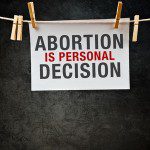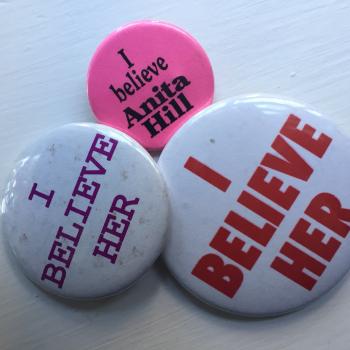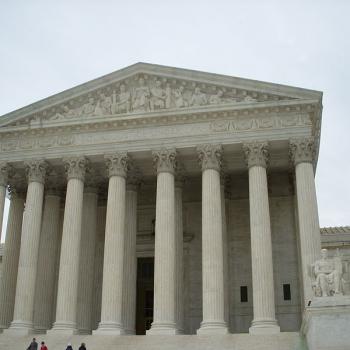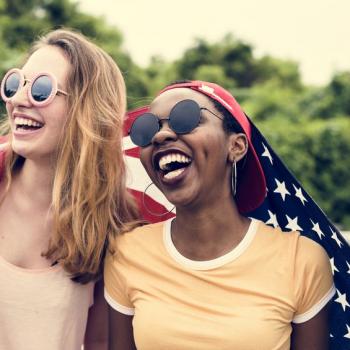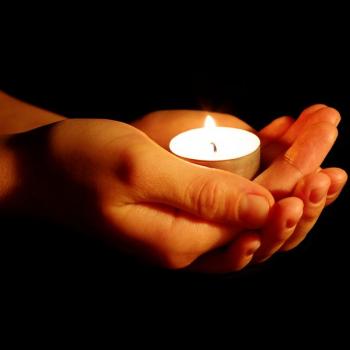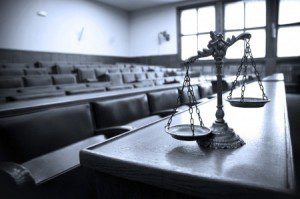
The case of Freddie Gray, Jr. is once again in the headlines this week as a massive $6.4 million civil settlement has been awarded by Baltimore’s financial control board to the Gray family. This settlement is unrelated to the upcoming trials of six police officers facing criminal charges in the case.
For those who don’t remember the details, Gray was a 25-year old black man who received a fatal spinal cord injury while in a transport vehicle when he was in police custody. Gray’s requests for medical attention had been ignored. His death sparked massive unrest and widespread protests and rioting in Baltimore this past April.
Sometime today, defense attorneys for the police officers are set to argue that the trials of these six officers be moved out of the Baltimore region because the officers will be unable to receive a “fair trial” in the city.
Regardless of what Circuit Court Judge Barry Williams decides about the venue in this case – there is a broader question that we ought we be discussing as a society in the midst of the Black Lives Matter movement. That is, the question of whether or a not a “fair trail” is possible in a racist society?
In the US we often think about our jury system as the right to be tried by a “jury of your peers.” However, that language is actually from the Magna Carta. What the Constitution guarantees is the right to an “impartial jury.”
Of course, we mustn’t forget that for most of the history of our country only white men were legally allowed to sit on juries. Utah was the first state to allow a woman to sit on a jury in 1898 but it wasn’t until 1979 that the Supreme Court ruled that women were not allowed to “opt out” of jury service simply because of their gender.
And despite the fact that the Civil Rights Act of 1875 was intended to extend the civil right of serving on a jury to black men, racism functioned to find ways to deny black men (and later women) this civil right for decades. It wasn’t until 1935 that the Supreme Court ruled in Norris v. Alabama that blacks could not be systematically excluded from jury service.
A 2010 report by the Equal Justice Initiative documented extensive racism that is shaping the criminal justice system in the United States.
We identified counties where prosecutors have excluded nearly 80% of African Americans qualified for jury service. We discovered majority-black counties where capital defendants nonetheless were tried by all-white juries.
While the study looked at jury selection in eight Southern states, the events in Ferguson, MO (Michael Brown); Baltimore, MD (Freddie Gray, Jr.); New York city (Eric Garner); Cleveland, OH (Tamir Rice); Tulsa, OK (Eric Harris) and too many other places across across this country demonstrate that racism continues to be a social ill that distorts the social fabric of our country.
Many whites across this country have reacted in support of the Black Lives Movement. However, too many others have reacted with surprise or anger to the Black Lives Matter movement, largely because they don’t consider themselves to be racist. The point that so many people inside and outside the movement keep highlighting is that the most dangerous aspect of racism that we face as a society is structural racism, not individual racists.
Most of us aren’t trained to think about social problems in a structural way. When we think about racism we think about people who are prejudiced or who act in racist ways. When we talk about structural racism, we have to think about how the structure of our society are shaped by conscious and unconscious cultural prejudices.
Highlighting the the way in which racism impacts our jury trial system is important because it is an example of structural racism in our society and how these structures of racism shape and/or perpetuate injustice in our society. A problem that is even more pernicious when we find it inside the very systems that are supposed to promote justice in our society.
As we watch the proceedings unfold in Baltimore in the days, weeks, and months to come in the trials of the six police officers charges in Gray’s death, I hope we will all pay close attention to the multiple ways in which prejudice is invoked and what forms of prejudice are active but unnamed as this trial moves forward.
The idea of an “impartial jury” is certainly a laudable goal in the distribution of justice in a society. Given what we know about how prejudice and bias work in individuals and communities, we are compelled to ask the question of whether or not humans are capable of “impartiality”?
Particularly given how deeply bias and prejudice runs on issues of race, gender, citizenship, sexual identity, and many other factors that show up in our courtrooms on a daily basis.

